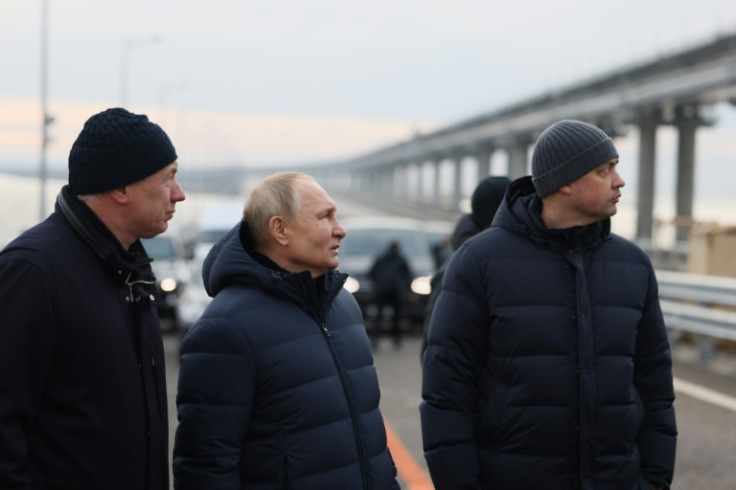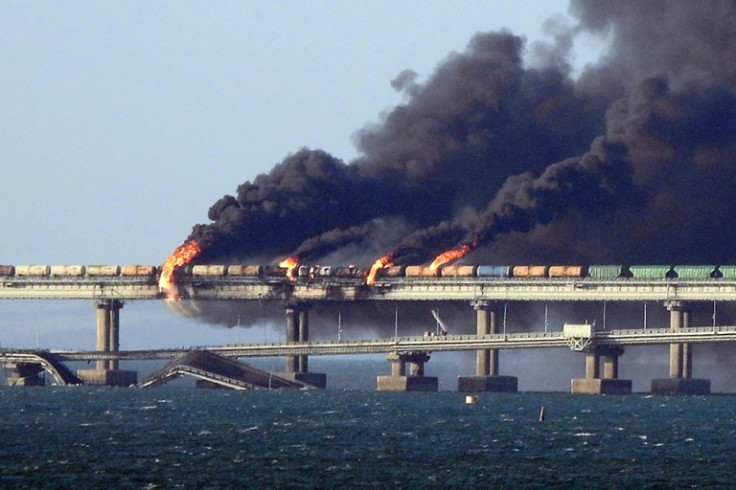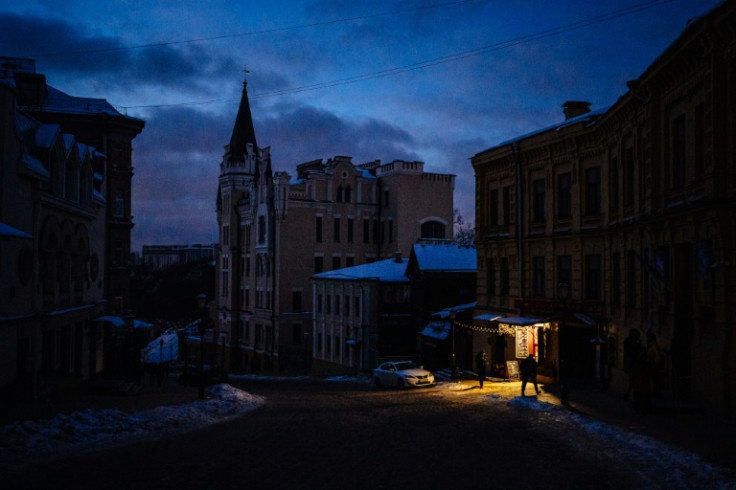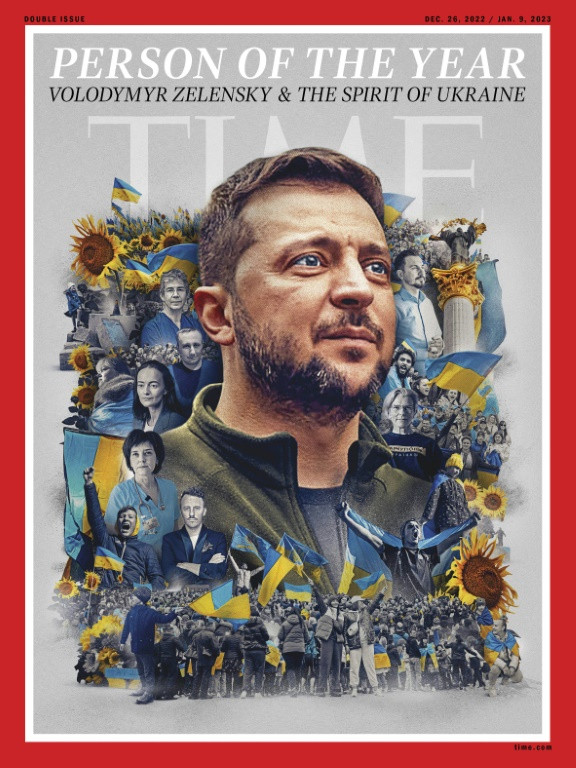Putin Vows More Strikes On Ukraine Energy Infrastructure

President Vladimir Putin vowed Thursday to keep battering Ukraine's energy grid despite an outcry against the systematic attacks that have plunged millions into the cold and dark as winter sets in.
He instead blamed Ukraine for initiating a trend of attacking civilian infrastructure, pointing to a blast on a key bridge between the Russian mainland and the annexed Crimean peninsula that he recently visited.
"There's a lot of noise about our strikes on the energy infrastructure of a neighbouring country. This will not interfere with our combat missions," Putin said at a military awards ceremony in the Kremlin.
Weeks of Russian missile barrages across Ukraine have crippled key infrastructure at a critical time, as temperatures drop ahead of long winter months that already have brought suffering to Ukrainians lacking water, heating and gas.
He presented the strikes as a response to the explosion in October on the Kerch bridge and also accused Kyiv of blowing up power lines from the Kursk nuclear power plant and for not supplying water to Donetsk in eastern Ukraine.
"Yes, we do that," Putin said of the strikes on the Ukraine grid. "But who started it?"
Ukrainian energy operator Ukrenergo said Thursday that it was still reeling from the latest bout of strikes that came this week and was suffering a "significant deficit".
"The situation is complicated by weather conditions," it added, saying snow, frost and wind were putting pressure on infrastructure.
Putin's promise to keep attacking the grid came as the Kremlin conceded that the Crimean peninsula was vulnerable to Ukrainian attacks after officials said they had shot down a drone near a key naval base.
"There are certainly risks because the Ukrainian side continues its policy of organising terrorist attacks," Kremlin spokesman Dmitry Peskov told reporters.
"But, on the other hand, information we get indicates that effective countermeasures are being taken," he added.
The Moscow-appointed governor of Crimea Sergei Aksyonov said last month that Russia was strengthening fortifications on the peninsula in the wake of attacks.
And the governors of two Russian regions bordering Ukraine have said they inspected the construction of defence lines days after Ukrainian drones struck key military airfields.
In the latest incident over Crimea on Thursday, Russia said it had shot down a drone over the Black Sea near Sevastopol, the largest city on the Crimean peninsula that hosts a key Russian naval base.
"As per usual our military carried out its work well," said the governor of the Sevastopol administrative region, Mikhail Razvozhayev.
The peninsula was annexed by Russia in 2014 after a so-called referendum that Ukraine and the West never recognised. Moscow said in September it had annexed four more regions of Ukraine, despite not having full control over them.
There have been several explosions at or near Russian military installations in Crimea since February, including a coordinated drone attack on a key Russian naval port at Sevastopol.
The shooting down of the drone on Thursday came after a series of attacks deep in Russia -- including the Engels airfield, a strategic bomber military base -- for which Ukraine has not claimed responsibility.
Separately, the Russian security services (FSB) arrested two people accused of spying for Ukraine on Crimea and accused them of "treason", the agency's press service said Thursday.
The FSB "halted the illegal activities of two Russian citizens suspected of committing high treason in the form of spying in the interests of the Security Service of Ukraine," it said in a statement.
One of those detained is "a supporter of Ukrainian nationalist ideology and was recruited by the Ukrainian secret services in 2016," the statement said.
He is suspected of "transferring data on the location of Russia's defence ministry facilities to a foreign security agency, which could be used against Russia's security."
The Kremlin hit out at Time magazine's decision a day earlier to name Ukraine President Volodymyr Zelensky as "Person of the Year", saying it reflected "Russophobic" trends in Western countries.
The Politico news website also named Zelensky as the "Most Influential" person in Europe.
And during a ceremony in Rome Thursday, Pope Francis was briefly reduced to tears as he prayed for the people of Ukraine.
One of Turkey's most influential marine biologists, Bayram Ozturk, pleaded for the creation of an "ecological corridor" to save dolphins and other sea creatures from destruction during the conflict.
His Marine Research Foundation has organised a conference in Istanbul on Friday where Ozturk will exchange ideas with colleagues from the Black Sea's other lateral states.




© Copyright AFP 2025. All rights reserved.





















